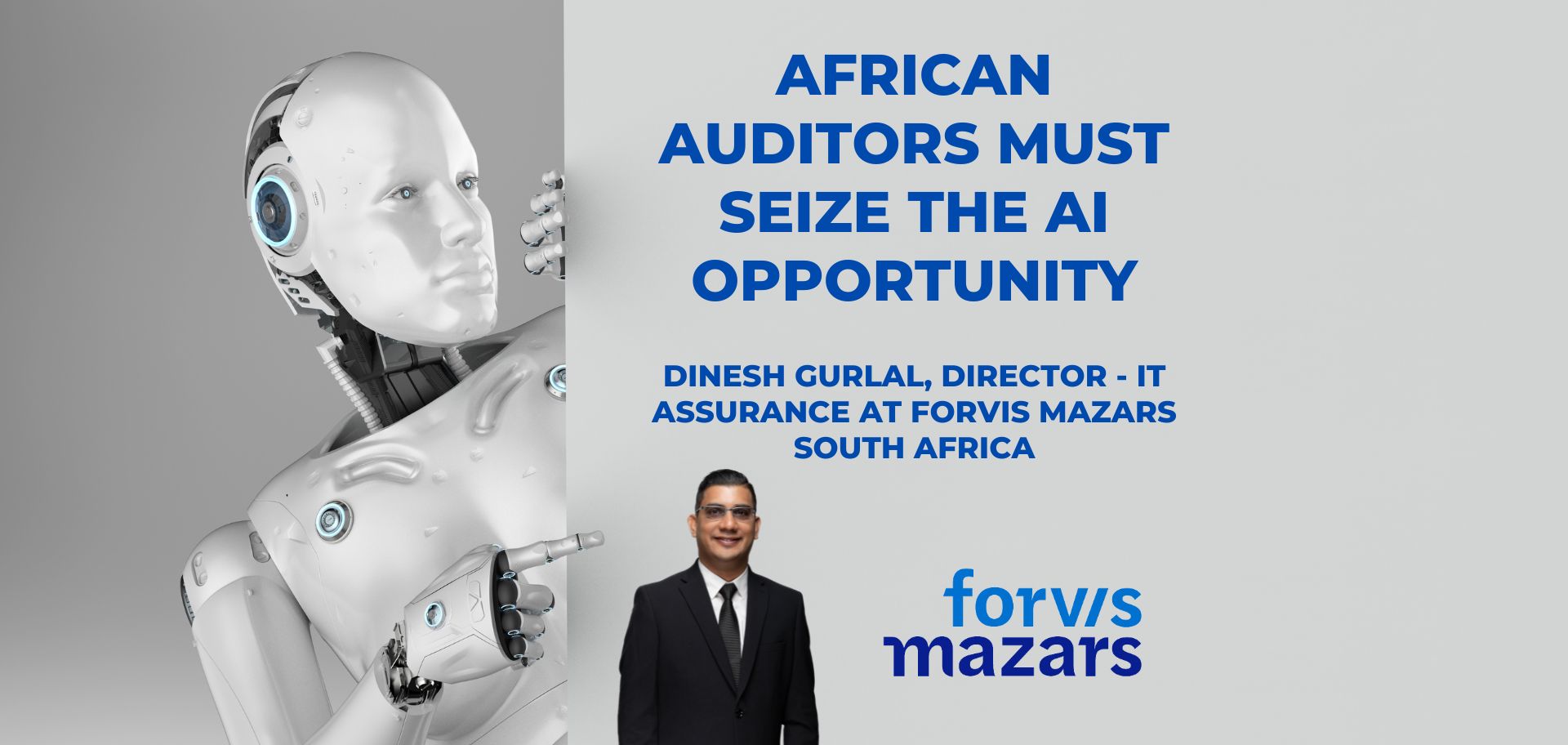We must invest to ride the wave that is transforming global auditing.
When it comes to technology, the early bird often misses out on the juiciest worm. Take the way in which Africa’s comically dire communications infrastructure, plagued by decades of non-investment, positioned it to leapfrog straight to mobile, unhampered by legacy investments in copper cabling that needed to be sweated.
While one wouldn’t recommend this as a strategy, a similar kind of serendipity gives the continent another opportunity to leverage the experience and insights of the developed world when it comes to using artificial intelligence (AI) in auditing.
At present, Africa’s auditing profession is immature when it comes to technology. One factor is that skilled human resources are typically cheaper relative than in more advanced economies, so it can seem to make sense to keep on with manual processes.
A second factor is the expense of investing in the new technologies – African auditors typically do not have the large IT budgets that their global peers do.
In truth, though, there is no option. As auditing globally becomes more proficient at using AI, and as AI itself approaches the Holy Grail of artificial generative intelligence (AGI, or AI that more closely resembles human intelligence), African auditors will have to follow suit. Their clients will demand it.
In addition, by using AI, auditors can do more with fewer people. AI enables even a small audit firm to process all the available data and to automate much of the work.
There is a lot of hype about AI in the business community, and it’s clear that companies see AI as a game changer. AI is thus receiving an increasing proportion of companies’ ICT spend, and this trend is particularly evident when it comes to the finance department. Gartner research shows that CFOs are planning to increase their technology spend largely thanks to the demand for AI. Ninety percent of respondents projected higher budgets, and none planned a reduction. They are particularly enthused about generative AI, which more closely mimics human intelligence.
IBM research indicates that CFOs are looking to AI to help them turn data into actionable insights, and help the finance workforce work more productively.
In tandem with these developments, it follows that CFOs and CEOs will increasingly expect their auditors to use AI effectively to deliver better value for money. Key expectations include audits that are more efficient, using fewer man hours and more accurate, and audits that do not just look backwards but that can predict trends.
While AI is by no means routinely used even in the developed world, but it is definitely being piloted by the majority of them. The Big Four auditors are already making massive AI investments, and the rest of the industry is following suit.
It’s a way off, but AI is on track to become as common as Excel spreadsheets in the finance world as a whole, including auditing. The revolution has already begun with Microsoft’s innovation of embedding its CoPilot AI app into Power BI. Now, finance teams will be able to summarise and identify trends in financial data using simple prompts.
African companies, and international companies with African offices, will come to insist that they get the same level of auditing excellence via AI as their competitors elsewhere in the globe.
Understanding the challenges
In short, the writing is on the wall. For African audit firms, the first step is to understand what their challenges are, and then to begin finding ways of overcoming them.
Budget. New technology is expensive, as a rule, exacerbated by the relative weakness of African currencies. For example, the inclusion of Copilot in most Microsoft applications makes better analysis of data much easier, but it costs around $30 per user per month. Similarly, workflow automation software can cost around €3,000 per licence. On the positive side, by keeping tabs on how global peers do it, African audit firms can avoid misallocating budgets to technologies that will ultimately prove to be disappointing.
Overall, African auditors should see AI as a long-term investment that will result in substantial savings and enhance their competitiveness.
Security. Large amounts of data will inevitably contain a great deal of sensitive data. Audit clients will rely on their auditors to have the right security protocols in place – another significant cost. Exposing sensitive client or company data on public AI platforms, for example, is a massive risk.
Skills shortages. While African talent will remain relatively less expensive than equivalent talent in the developed world, the specific skills needed for a more data-intensive, automated audit environment are in short supply everywhere. African audit firms will have to invest in growing their own timber.
For example, Forvis Mazars South Africa has invested in a data school that trains new graduates in software development and no/ low-code software, as well as the automation of continuous auditing.
Many of the bigger audit firms are undertaking similar initiatives, which will see more of these rare skills coming onto the market – a benefit to the industry and the ecosystems in which these firms operate. In fact, one could see potential for smaller firms to enter into formal agreements with the larger firms with their own training establishments.
There is a clear and present need to invest in AI but, as noted above, African firms can proceed cautiously with one eye on the experiences of more advanced companies outside of the continent. And, despite being competitors, there is a good argument to be made for the African auditing industry – or perhaps “ecosystem” would be a better term – to collaborate in the drive to build a bigger talent pool.
We became the mobile-first continent by accident; could we become the AI-first continent by design?



